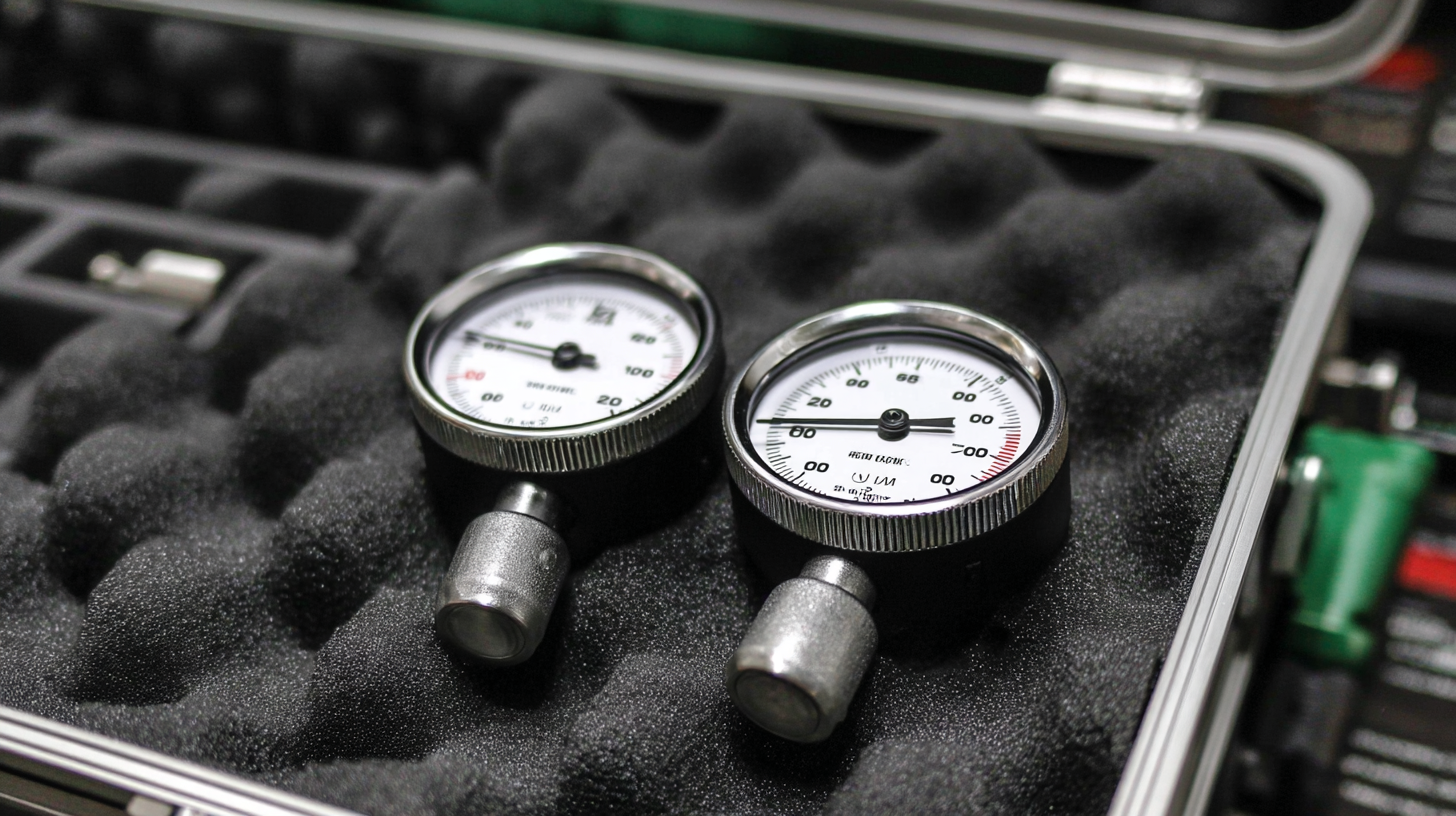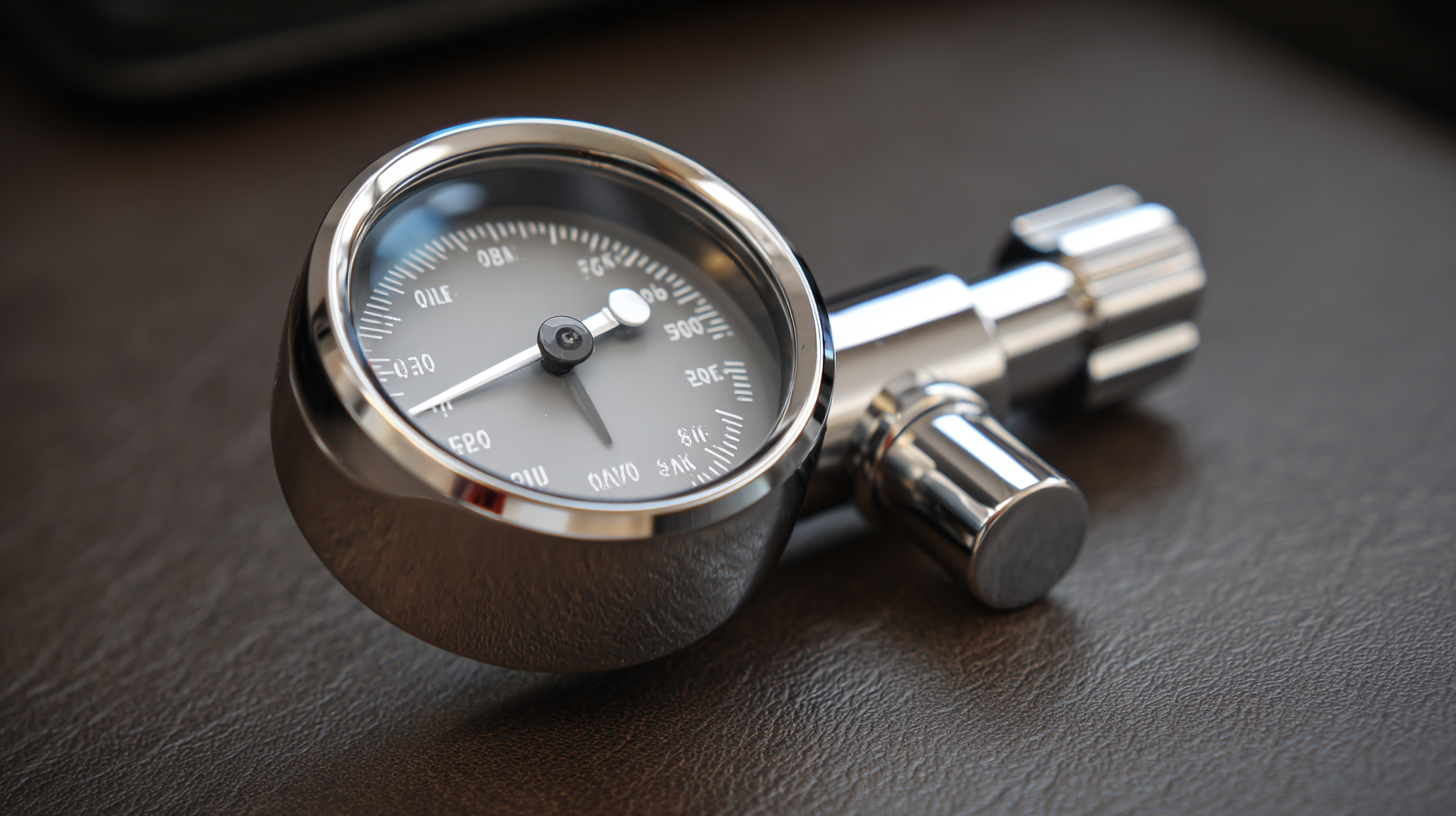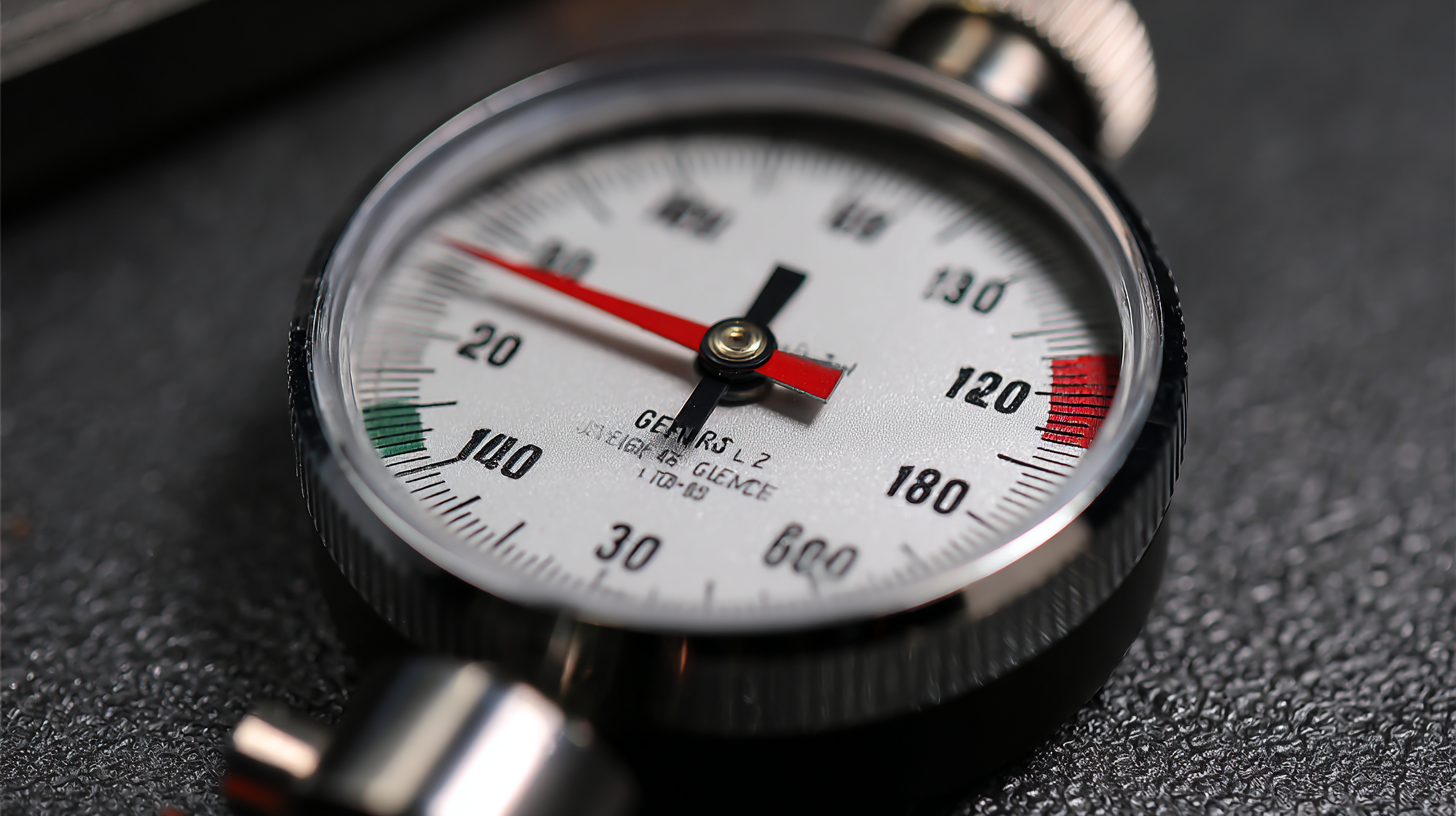

In today's fast-paced business environment, ensuring precision in measurements is critical for maintaining quality and efficiency. Selecting the right Gauge Checker for your business needs can significantly impact your operational success. With numerous options available in the market, it is essential to understand the various features and specifications that different gauge checkers offer. From digital models with advanced technology to more traditional mechanical options, the right choice will not only help in minimizing errors but also enhance productivity. In this blog, we will explore seven essential tips that will guide you through the comparison of different gauge checkers, enabling you to make an informed decision tailored to your unique operational requirements. Whether you are in manufacturing, quality control, or another industry that demands precision, our recommendations will help you choose the best gauge checker to meet your business objectives.

Gauge checkers play a crucial role in manufacturing processes, ensuring accuracy and consistency in product quality. In the context of Total Quality Management (TQM), which emphasizes the continuous improvement of processes and products to reduce errors and enhance customer satisfaction, the importance of selecting the right gauge checker cannot be overstated. According to industry reports, businesses implementing TQM strategies have seen a 20-30% reduction in defect rates, largely due to improved measurement and monitoring techniques.
Moreover, using high-quality gauge checkers aligns with key performance indicators (KPIs) that track operational efficiency and quality control. Data indicates that companies utilizing advanced measurement tools report a 15% increase in productivity compared to those relying on outdated methods. By choosing the most suitable gauge checker, manufacturers can effectively minimize supply chain disruptions and enhance compliance with industry standards, ultimately leading to better resource management and improved profitability. In an increasingly competitive market, the right measurement tools facilitate ongoing product refinement, essential for meeting evolving customer demands.
When selecting a quality gauge checker for your industry, it's essential to focus on several key features that can significantly impact your operational efficiency. First and foremost, accuracy and precision are paramount. According to a report by the National Institute of Standards and Technology, even minor deviations in measurements can lead to significant cost implications, with businesses potentially losing up to 10% of revenue due to inaccurate gauge readings. Therefore, investing in a gauge checker that boasts a high degree of precision is vital for maintaining product quality and ensuring compliance with industry standards.

Another critical feature to consider is ease of use and integration within your existing systems. A survey conducted by the Manufacturing Institute highlights that 78% of manufacturers prioritizing user-friendly technology have seen a 20% increase in production efficiency. This statistic underscores the importance of choosing gauge checkers that offer intuitive interfaces and seamless integration with your current processes. Additionally, features like real-time data tracking and software compatibility can greatly enhance decision-making and responsiveness within your operations. By focusing on these essential attributes, businesses can ensure they select a gauge checker that meets their specific needs while optimizing overall productivity.
When selecting a gauge checker for your business, evaluating calibration standards is crucial to ensure accuracy and compliance. Calibration standards serve as the foundation for any measurement system, establishing the reference points against which your gauge checker will be assessed. Businesses must choose a gauge checker that adheres to recognized calibration standards, such as ISO or ASTM, to ensure that measurements are both reliable and valid. This adherence not only guarantees the precision of the measurements but also enhances the quality control processes within your organization.
Additionally, it's important to consider the traceability of the calibration standards used by the gauge checker. Traceability to national or international standards provides confidence that the measurements taken are consistent and can be reproduced. This is especially vital in regulated industries where compliance with strict guidelines is non-negotiable. By prioritizing gauge checkers that meet these calibration standards and demonstrating traceability, businesses can mitigate risks associated with inaccurate measurements, ultimately safeguarding product quality and maintaining customer trust.
When it comes to selecting a gauge checker for your business, budgeting plays a crucial role in determining the right balance between quality and cost. While low-end options may seem enticing due to their affordable price tags, they often come with hidden costs that can impact your operations. These budget options may lack durability, accuracy, and reliability, which could lead to costly mistakes and wasted materials in the long run. Investing in a quality gauge checker can save you time, reduce errors, and enhance overall productivity.

On the other hand, although higher-priced gauge checkers may initially stretch your budget, they typically offer superior features and longevity. A well-constructed gauge checker often includes advanced technology that ensures precision and consistency, which is vital in maintaining product standards. Additionally, a reputable gauge checker often comes with better customer support and warranties, providing peace of mind and ongoing value. Thus, when comparing costs, consider not just the initial purchase price, but the long-term benefits and potential savings that come with choosing a quality tool tailored to your business needs.
When selecting a gauge checker for your business, understanding the reputation of the manufacturer is crucial for long-term reliability. A reputable manufacturer typically has a track record of delivering high-quality, precise instruments that meet industry standards. They invest in research and development to ensure their products incorporate the latest technologies, which ultimately leads to better performance and durability. A company with a solid reputation will also provide robust customer support and a transparent warranty policy, allowing you to feel secure in your investment.
Moreover, a thorough assessment of manufacturer reputation can help you sidestep potential pitfalls associated with unreliable products. By researching customer reviews, industry endorsements, and case studies, you can gauge the experiences of other businesses with the same equipment. This information will give you a clearer picture of how the gauge checker performs in real-world applications. Choosing a manufacturer with a strong reputation ensures not just immediate satisfaction, but also long-term reliability—key for maintaining efficiency and quality in your operations.
This bar chart illustrates the key factors to consider when assessing the reputation of gauge checker manufacturers. Each category reflects the importance of various aspects such as customer satisfaction and warranty options in ensuring long-term reliability for your business needs.
